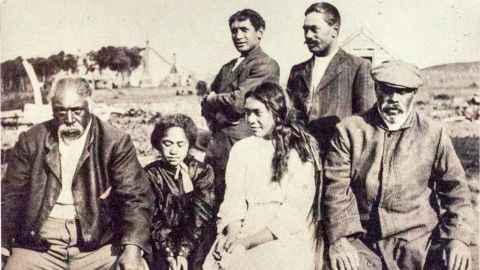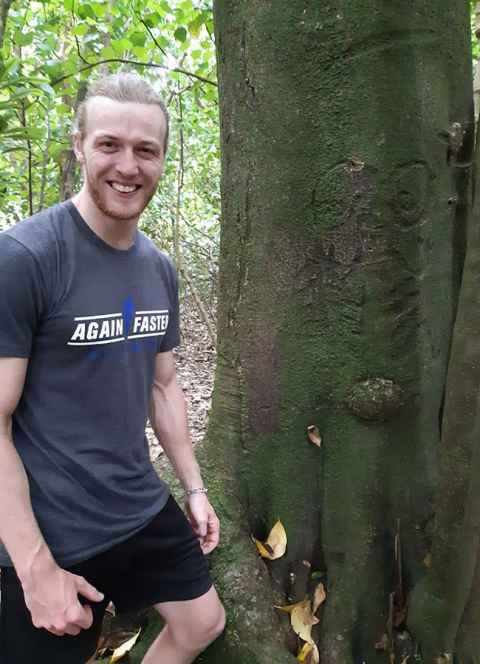Ta rē Moriori, the language of the Chatham Islands, is one of New Zealand's indigenous languages, but currently has no native speakers, something linguist John Middleton and the Hokotehi Moriori Trust would like to change.

The Moriori people inhabited the Chathams for maybe as long as 500 years before Europeans arrived, and the subsequent arrival of Ngāti Mutunga and Ngāti Tama, two Māori tribes from Taranaki in 1835, eventually led to the death of the language.
"Enslavement, murder and cannibalism by these tribes led to a tragic result; the last native speaker of Moriori died around 1900," says John Middleton, a professional teaching fellow and doctoral student in the University of Auckland's Faculty of Arts.
Middleton on a mission to research and revive ta rē Moriori, in a collaborative effort with the Hokotehi Moriori Trust, which looks after many of the interests of Moriori people across New Zealand and the diaspora around the world.
"Languages with no speakers have sometimes been called sleeping languages, in that they are currently not being spoken," he says. "However, this leads to the possibility of those languages 'waking up', something that requires native speakers who have learnt the language as small children."
Middleton believes what we would need is some adults to learn the language from scratch, and for them to commit to speaking it to their (or some) children.
"At the moment, the Moriori language is confined to old manuscripts because no one has written a grammar or teaching guide on it. But there are enough manuscripts, kauho (legends) and karakia (songs) written in Moriori for this to be a future possibility."

Although in fact, some Moriori people on the Chathams are already learning bits of the language and using it in their day-to-day conversations, says Middelton, and bringing a language back to life has also been done before.
"The Wampanoag language from Massachusetts, USA, lost its last speaker around the same time as Moriori, in the 1890s. However, there was significant written literature prior to this point, including a bible from 1663 and many other religious texts."
In the 1990s, Jessie Little Doe Baird, a member of the Wampanoag community, constructed a Wampanoag dictionary and grammar from the old texts.
"From these, members of the community started re-learning the language, and teaching it. By 2014, there were 50 children taking classes, many of whom are now considered fluent native speakers."
Some things from the old language would inevitably be lost, Middleton says.
"Every speaker of a language has native speaker judgements which aren't taught but are inherently known. For example, in English we put size adjectives before colour adjectives (little brown dog), and doing the opposite just sounds a bit weird (brown little dog).
"We don't get taught this; we just instinctively know it as a native speaker. If there are no examples of size and colour adjectives stacked together in the Moriori texts, we have no way of knowing the ordering rules."
And every native speaker of any language has so many of these little rules in their brains without realising it, he says.
"Even if we were to analyse all of the old Moriori manuscripts, it wouldn't be possible to figure out every single rule, so some of those native speaker judgements were simply lost when that last native Moriori speaker died in the early 1900s."
The new Moriori language couldn't hope to be identical to the one last spoken over 100 years ago, but as all languages are always changing, that's no problem.
John Middleton Faculty of Arts
However, he says, if a child was to learn Moriori now, their brain would fill in those gaps and make new rules and patterns for the things we don't know about the language.
"For example, if we're not able to find the order of adjectives from the old manuscripts, a child would pick an order that sounded suitable. This might be done from copying the languages the child would also hear spoken around them, say English or Māori."
The new Moriori language couldn't hope to be identical to the one last spoken over 100 years ago, but as all languages are always changing, that's no problem, says Middleton.
"This would be Moriori 2.0. It's a massive endeavour, which would require compiling, transcribing and translating all the old Moriori texts, and then turning them into teaching and learning materials, but it could be done. How incredible would it be to wake up New Zealand's other native language? Anyone keen to start learning it?"






